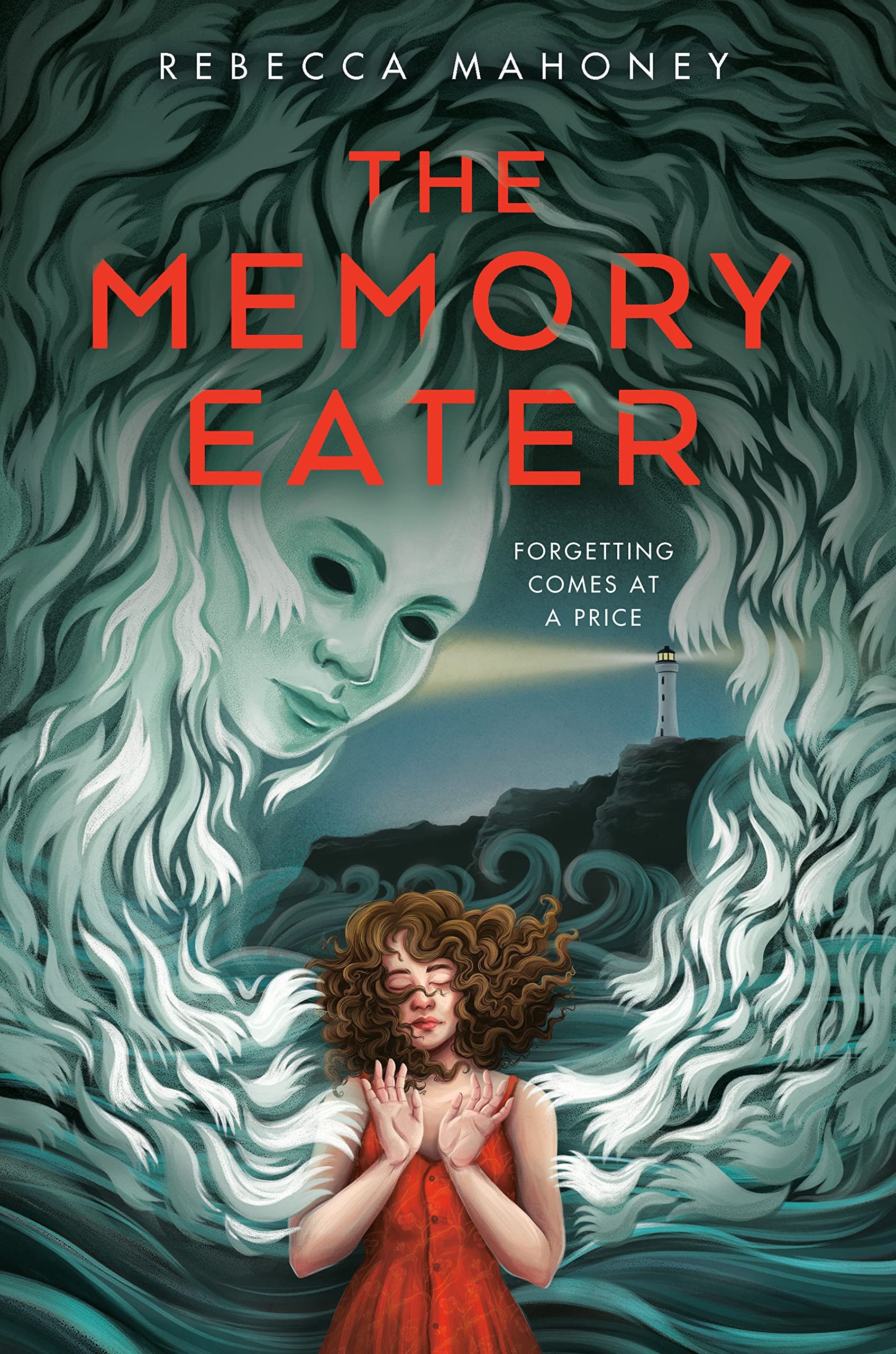Inspiration is a funny thing. It can come to us like a lightning bolt, through the lyrics of a song, or in the fog of a dream. Ask any writer where their stories come from and you’ll get a myriad of answers, and in that vein I created the WHAT (What the Hell Are you Thinking?) interview.
Today’s guest for the WHAT is Rebecca Mahoney, author of The Memory Eater, the story of a teenage girl who must save her town from a memory-devouring monster
Ideas for our books can come from just about anywhere, and sometimes even we can’t pinpoint exactly how or why. Did you have a specific origin point for your book?
The Memory Eater was the meeting point for a couple different concepts I wanted to write: a town built to hold a monster in, a teenage girl somehow responsible for the livelihoods and well-being of the adults around her, and a community that thrives on supernatural capitalism. But I think if there was an original origin point, it was probably my own tendency to ruminate over memories I’d rather not think about, much like many of us do when we’re falling asleep. It’s very easy to daydream, during those long nights, about the ability to just toss a memory out of your head and out of existence. So in writing this story, I wanted to ask myself – what if that went horribly wrong?
Once the original concept existed, how did you build a plot around it?
I think my plots always come together in concentric circles: I start with the very basics of the idea, then I usually nail down the emotional arc first, and build out the plot and the finer details around it. The Memory Eater’s construction process was a bit messier, since it was the first ever book that I wrote on deadline. With previous manuscripts, I usually wouldn’t sit down to write until I knew exactly what the scene was going to look like, but with TME, I didn’t have as much time for precise brainstorming or self-editing. But in a lot of ways, that ended up being very useful, because when I had to keep pushing ahead, I was able to figure out, in reverse, exactly what I wanted to do with the book. And once I had a clean draft to share with my editor, the basic plot beats of TME actually needed much less work than manuscripts I’ve written before!
Have you ever had the plot firmly in place, only to find it changing as the story moved from your mind to paper?
Oh, all the time! I’m generally a plotter – I always need a fairly detailed outline so I can always be aware of what plot and emotional beats I want to hit, both on the scene level and the chapter level. But I always go into a story very aware that the outline is going to change as I get going in earnest. Sometimes my original idea doesn’t work as well on paper as I thought it would, sometimes one of my critique partners will say something that connects a dot I didn’t realize was there, or sometimes I realize I need a bit more connective tissue to really drive home the emotion in the scene. The basic skeleton of the outline often stays the same, but the fine details grow as the story does!
Do story ideas come to you often, or is fresh material hard to come by?
I would say that I get story ideas fairly often, but they always need a little time to finish baking in my little brain oven. I do occasionally jump into a story idea right away, but my two published books, The Valley and the Flood and The Memory Eater, both came about after percolating in my thought for years. I try to keep a running list of things I want to write so that I can revisit them frequently.
How do you choose which story to write next, if you’ve got more than one percolating?
Because of the aforementioned list, I have a bit of a queue! I’m not someone who does well with working on multiple projects at the same time, so by the time I finish something, there’s usually a project or two that’s been trying to tempt me away from my WIP. Sometimes it’s really difficult to choose what I’ll be tackling next, and sometimes I’ll have my agent, editor, or friends weigh in. But generally the next project is the one that feels the most ready to write. (Although some projects just aren’t going to be fully ready until I dive in!)
I have 6 cats and a Dalmatian (seriously, check my Instagram feed) and I usually have at least one or two snuggling with me when I write. Do you have a writing buddy, or do you find it distracting?
My roommate’s cat, Mouse, can certainly be distracting from time to time! She’s extremely chatty, and if I’m sitting on the couch, chances are that she’s going to want me to put my laptop down and pay attention to her instead. But she’s very cute, so it’s never a hardship to take a break and give her what she wants. And if it disrupts the flow a little, that’s okay – the flow will come back!
Rebecca Mahoney is the author of The Valley and the Flood (out now from Razorbill), as well as the forthcoming The Memory Eater (Razorbill 3/14/23), and the co-creator of independent audio drama The Bridge. Rebecca is a strong believer in the cathartic power of all things fantastical and creepy in children’s literature - and she knows firsthand that ghosts, monsters, and the unknown can give you the language you need to understand yourself.






